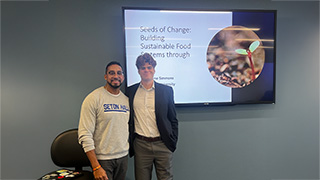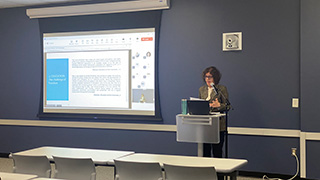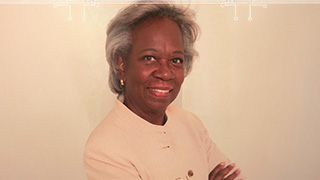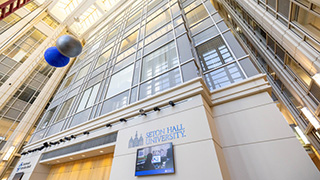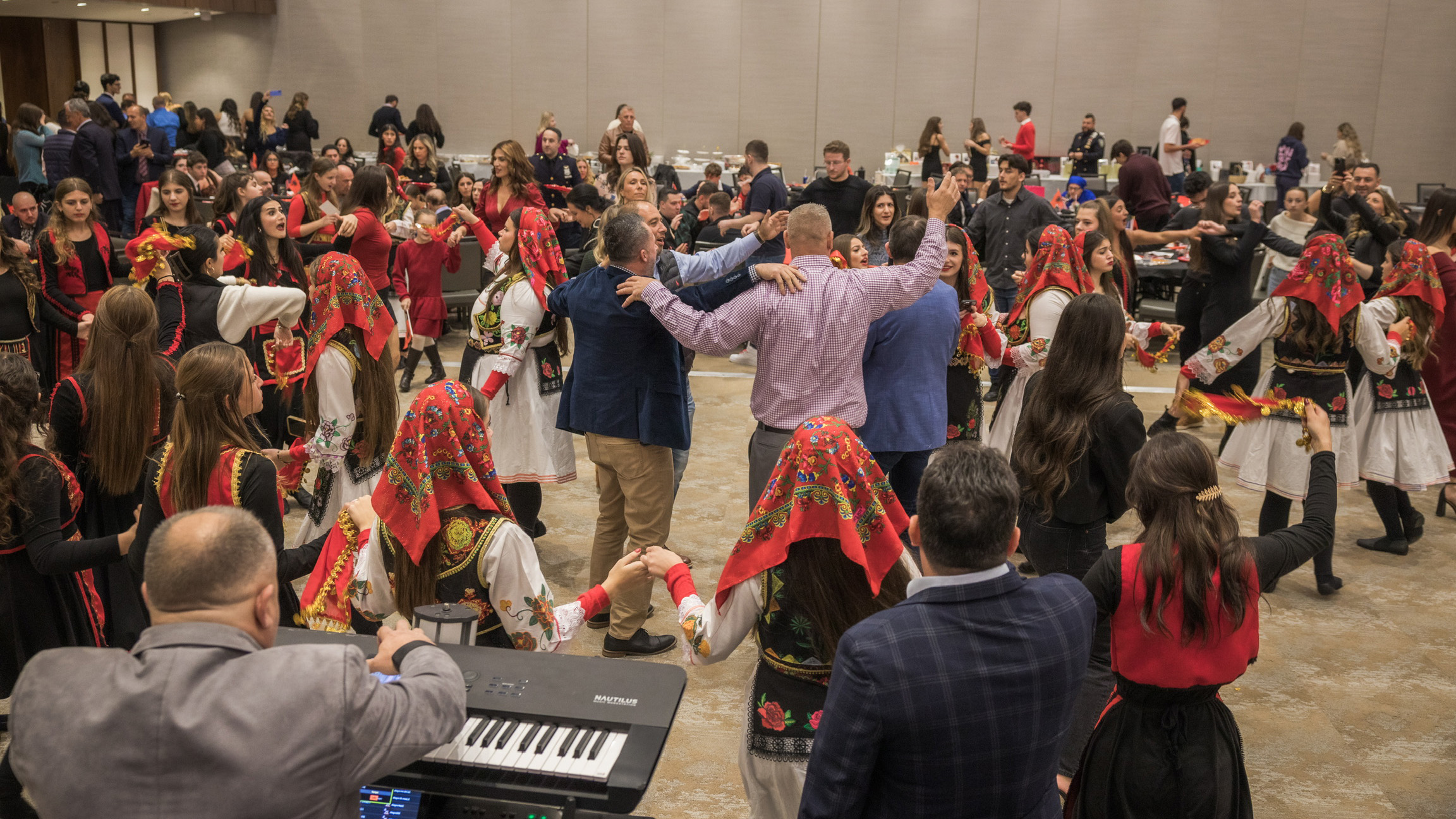A Closer Look at Seton Hall’s Employee Professional Development Program
Friday, September 27, 2024
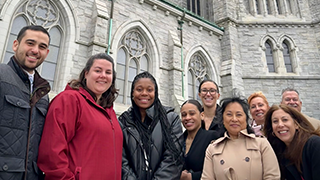 At the heart of Seton Hall, a new initiative is helping employees tap into one of
the University’s best sources for career development: each other.
At the heart of Seton Hall, a new initiative is helping employees tap into one of
the University’s best sources for career development: each other.
Now in its fourth year, the Employee Professional Development program pairs members of the Executive Cabinet with administrators across different departments in a mentor-mentee relationship. Through one-on-one meetings, participants build new relationships across the University while gaining professional advice and confidence.
“The true backbone of the program is the one-on-one mentoring, where each participant gets to work alongside a Cabinet member outside of their own discipline or division,” said Michael Silvestro, associate vice president of Human Resources. “Employees are intentionally cross matched to really give each participant a bigger picture, bird’s eye view of how different levels of administration operate.”
Each participant—whether a mentor or a mentee—brings a unique perspective in a structure that is straightforward yet impactful, resulting in a dynamic exchange of experience. The program is designed to foster professional growth, skill development and leadership advancement, with participants selected based on supervisor nominations for each cohort.
For mentees, the program has offered not just practical advice, but also a broader view of the University through the lens of its leaders. Derek Martinez, assistant vice president, marketing and communications, enrollment services, gained a deeper understanding of the University’s business operations and decision-making within Athletics and Facilities and Operations, through his partnership with Patrick Lyons, executive vice president, chief of staff and chief operations officer.
“One of the most valuable lessons was seeing the business of the university from a scope much larger than my own day-to-day—seeing how other vice presidents operate and how each of their divisions is structured,” commented Martinez.
Mentors, too, find the program deeply rewarding. “Through the program, I have been able to share the perspective of a vice president with our aspiring leaders. In turn, I have also learned a great deal from each mentee as they provide insight into their areas of responsibility. It’s been a pleasure to gain incredible insight from tomorrow’s leaders,” commented Matthew Borowick, vice president of University Relations.
Mentees and mentors come from various departments, which helps build broader networks within the University, mutually complementing each participant’s growth. “It’s a two-way street where everyone involved benefits,” added Borowick.
The relationships developed also inspire new opportunities for mentees, like Joy Hayward, director, HRIS and Employment of Human Resources. Today, encouraged by Provost and Executive Vice President, Katia Passerini, Hayward is in her second semester teaching Journey of Transformation within the University CORE.
“Her support gave me the push I needed to work with Nancy Enright, Ph.D., and Maribel Landrau and gather more information about teaching. I’ve found it’s such a beautiful way to connect the Catholic mission that I hold so dear, and also interact with first year students,” reflected Hayward.
And, even after the official mentoring period, the relationship between the mentor and mentee often continues beyond the formal pairing. “There’s an element of continuity; the connections extend beyond the one-year commitment, with participants remaining in touch even to this day,” commented Silvestro.
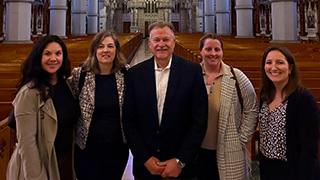
In addition to the one-on-one mentorship, workshops and forums are hosted throughout the year for the entire cohort to further complement the mentoring relationships. Topics cover areas such as the career paths of the University’s vice presidents to emerging trends in higher education with invited, external speakers. One such event included guest speaker and President of Centenary University, Dale G. Caldwell, and included a guided tour of the Cathedral Basilica of the Sacred Heart in Newark, New Jersey.
While the program continues to evolve each year, personal experiences remain its cornerstone. Shadowing Passerini, Hayward was invited to sit in on day-to-day meetings, including a strategic planning discussion that brought a fresh perspective to her role.
“We’re often busy with our day-to-day jobs, and it can be difficult to see how various tasks overlap on campus. Going to those meetings helped provide more context into the various priorities of the University, and really shined a light on how the student experience is ingrained into all that we do,” Hayward noted.
Categories: Campus Life, Faith and Service

